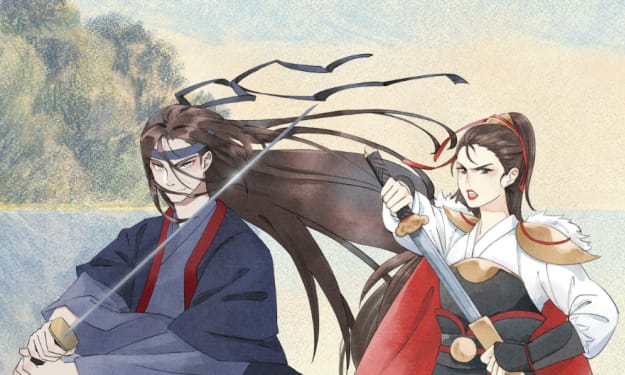
Can I tell you a secret, one that I kept even from my husband until six years into our marriage?
For as long as my brain has been capable of stringing cogent sentences together, I’ve been mentally drafting Appa’s eulogy. It surprises most people that I would even think to proactively draft such a morbid piece of writing. I can even imagine some of your brows lifting with concern as you wonder if I’d had some kind of tortured childhood. Why else would a little girl dream of writing such a thing for her father?
Let me reassure you here, my childhood was a happy one. Appa made sure of that. He turned his back to face the hurricane of a cruel world, one where immigrants were not looked upon kindly. And because he absorbed most of the ugliness, my sisters and I were able to blow bubbles, play countless rounds of Let’s Pretend, and swim carelessly in motel pools during the latest road trip.
Even with that unclouded stretch,there were rare moments then the thought would cross my mind. Someday Appa would die. You could think of this proactively bereft drafting as my way of processing the all-important every human being has ever learned - that things don’t always go the way you want.
You have to share your favorite toys. You get your favorite stickers stolen. You lose the game of Monopoly you were so sure was in the bag. The man doing the voice for Barney the purple dinosaur retires, and now there’s some high-pitched squeaker posing as your favorite on-screen character. I learned as a child that things don’t always go as planned, and that made me a pessimist of sorts.
I’ve always hated that word pessimist. I prefer prepared.
Even as faith grants the certainty of a future reunion, the thought of living an earthly life without my Appa has always been a gut-wrenching thought that never fails to steal the air right out of my lungs. So this pessimist - nay, queen of preparedness - that seeks to create a plan for every unfortunate possibility has been morbidly writing, rewriting, and trying to anticipate his eventual absence.
Because as far as my clouded eyes could envision, losing Appa was the worst possible thing that I could ever imagine.
For thirty nine years running straight, that hypothetical has claimed the top rung on a list that reads, ‘Horrible Things that could Happen.’ And every time I try to employ even two brain cells toward this gargantuan task, the words would come, sure. But so would the unavoidable rivulets of tears that would drench my cheeks with every passing minute of this exercise. I always thought that if ever I went crazy and decided to become an actress, I’d have no trouble crying on demand. I have a surefire method.
My Umma was a young, Korean immigrant with barely a few known English words that she could cobble together into a roughly comprehensible sentence. When she discovered she was pregnant with me, her first daughter, Appa didn’t hesitate.
“No more work,” he said sternly. There were no ifs, ands, or buts about it. He’d spent his childhood years in near impoverishment, often getting pulled from school to help out on the family’s small sweet potato farm. The farm supplied his meager breakfast and lunch for the day as he headed to school - one warm potato in each pocket. They would barely supply my young father his daily caloric needs, but at least they kept his hands warm in ways his raggedy, outgrown clothes couldn’t as he walked to school.
The farm - and work thereof - may have fed my Appa as a child, but it also robbed him of his parents. Their time, their ability to be present with him and care for him, were all displaced by the effort it took for them to keep the meager crops alive. They both passed away in their thirties, leaving my orphaned Appa to fend for himself and his siblings.
You know what they say about #firstworldproblems? In my mind, I often wonder about #firstworldchildren, who complain about overbearing parents checking up on their social media, or attaching a curfew to their fun. I can hardly keep from rolling my eyes, because Appa has, in my eyes, earned the right to hack into all my social media accounts and ground me for life.
He bore am impossibly large burden on his tired back so his children would never have to hungrily mistake the stones on the street as warmed potatoes.
His work was hard. It was painful. It was sleepless, it was lonely, and it was demeaning. What’s more, as an immigrant with a slim (though quickly growing) grasp of the English language, there was plenty of racism to weigh his feet each morning before he headed to work. But love was his fuel, and his love for his four girls silenced any complaints.
But my Appa’s tune has changed since retirement. He’s seen how the apple hasn’t fallen far from the tree and he’s since become quite the opponent of my bear-it-all, work-hard-toward-perfection attitude. Even though I’m a full-born American, I work as fervently as an immigrant. Maybe it’s because children copy their heroes, or maybe it’s because there are those who still make me feel like an outsider in my own country, but as a student and as a teacher, I never let myself rest well.
Appa wasn’t having it.
He told me about his close colleagues, one of which was a worker bee like myself, and the other who could never be bothered to lift a finger. “They both collected their paychecks,” Appa mused, his eyes crinkling the way they always do when he's telling a story. “They both headed into retirement. Work is work. Whether you destroy yourself with hard work, or plod and loaf your way to the end, you’re still going to cross the finish line just like the other. So don’t invite unnecessary stress.”
When the last school where I worked pushed me to a dark corner and I finally contemplated giving myself a period of rest, he cheered. “That’s the best birthday present you could give me!” he roared over the phone when I finally announced it.
I’m not certain where that will fit in the eulogy. Truth be told, I’d be happy if I never had to write the thing.
Besides, it gets longer every year as he constantly finds new ways to prove to me, once again, that a ddal always needs her appa.
About the Creator
Jane C
First it was the crayon.
Then my first novel, handwritten on 104 pieces of school looseleaf paper. The pages of this proud number were bound with thumb-smeared rice.
And now I'm here.
More of this wild mind at pageandspoon.com






Comments
There are no comments for this story
Be the first to respond and start the conversation.